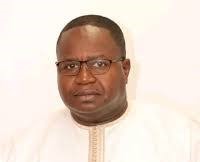By Kemeseng Sanneh (Kexx)
The Banjul High Court on Tuesday ordered three senior government officials to testify in the ongoing murder case against Ousainou Bojang and Amie Bojang. Ousainou iss accused in the fatal police shooting incident that shocked the nation.
The ruling, handed down by Justice Ebrima Jaiteh, granted a motion by the defense to compel the appearances of Ebrima G. Sankareh, the Government Spokesperson; Momodou Sowe, the Deputy Inspector General of Police; and Abubakarr Suleiman Jeng, the National Security Adviser. The judge ruled that all three are to appear in court on Monday, June 16, at 11 a.m., and to testify “fully and truthfully” until formally discharged.
“The Court finds no credible basis on which to refuse the application,” Justice Jaiteh wrote in a sharply worded decision that underlined the court’s authority to summon any competent witness in a criminal trial. He added that failure to comply would amount to contempt of court and “will be dealt with accordingly.”
The application to summon the officials was filed by Lamin J. Darboe, defense counsel for Ousainou Bojang, the first accused. Darboe argued that the three officials had made public comments or possessed information that could prove essential to the defense.
“These individuals possess vital information and have made significant statements relevant to the defence,” Darboe said, urging the court to compel their testimony under oath. Adama Sillah, counsel for the second accused, Amie Bojang, aligned himself with the application, emphasizing the court’s “unfettered discretion” to ensure a fair trial.
Sillah cited legal commentaries, including those by Chief Justice Hassan B. Jallow, to support the argument that competent witnesses are also compellable, barring any statutory exceptions — none of which, he argued, were applicable in this case.
But the Director of Public Prosecutions (DPP), Abdul M. Yusuf, objected, arguing that none of the named officials had given statements during the investigation or had any formal involvement in the police inquiry. Their testimony, he said, was therefore “irrelevant and unwarranted.”
Justice Jaiteh dismissed the prosecution’s objections. The judge emphasized that Section 117 of the Criminal Procedure Code grants the court the power to summon any competent witness, whether or not they provided statements to the police.
“That requirement applies solely to the prosecution’s case,” he said, underscoring that the defense is under no such obligation to rely only on witnesses who previously cooperated with investigators. Denying the request based on that reasoning, he said, would “unjustly curtail the accused’s rights.”
“The burden of proof in this criminal trial rests squarely on the prosecution throughout,” Justice Jaiteh noted. “The defence is entitled to call any competent witnesses to rebut or support their case.”
In the wake of the ruling, DPP Yusuf promptly informed the court of the prosecution’s intention to appeal the decision at the Court of Appeal.
















